Don't know what is in your Trust Deed
Topics covered in this article: Trusts
Make Time to Find Out
If you are a trustee and you haven’t looked at your Trust Deed since signing it, chances are you could be in breach of a number of your trustee duties, including the first of five Mandatory Duties recorded under the Trusts Act 2019 (“Act”): Know the terms of the Trust Deed.
Although the purpose of the Act is to make trust law more accessible for those using trusts (it uses simple plain English language, and set outs the rights of the Beneficiaries, as well as the duties, obligations and rights of Trustees that were previously embedded in difficult to locate or understand case law) the fact is, trusts, and the laws surrounding them, remain complicated and can be hard to navigate alone.
Unlike the cleaning product that tells you to “spray and walk away”, contrary to popular (and fortunately now outdated) belief, trusts are not a “set and forget” type of asset protection vehicle. Since the introduction of the Act a vast number of trustees have become aware that they fall short of their trustee duties, which can range from causing mild problems to disastrous consequences. Fortunately, if you find yourself in this position (or know someone who is) it is generally possible to get back on track. We regularly help trustees to carry out a comprehensive WOF style review on their Trust and provide them with the tools to continue to administer their trusts actively.
When tidying up trusts by way of a comprehensive trust review, the most commonly identified issues we find relate to the following:
- Beneficiary disclosure. Trustees must identify all of the people who fall within the class(es) of beneficiaries of the Trust in order to provide them with basic trust information. The purpose of this obligation is so that the beneficiaries can hold the trustees to account. Which brings us to the next issue.
- Wide classes of beneficiaries. Many older Trust Deeds contain such wide classes of beneficiaries it can feel like everyone in New Zealand could benefit from the Trust. Given that trustees must provide basic trust information to all beneficiaries, it may be time to look at streamlining the beneficiary classes.
- No “self-benefit” rule. Some Trust Deeds specify that one or more of the trustees must not be a beneficiary of the Trust, often referred to as an independent trustee. There are a number of reasons for having an independent trustee, one being to prevent trustees from breaching the “no self-benefit” rule. The issue we often see if that the independent trustee, who may be a professional advisor or close friend, is not involved in any trustee decisions meaning that, not only are all trustees are in breach, but that the trustee/beneficiaries are undermining the integrity of the Trust by treating trust assets as if they are their own.
- Trustee decisions made by majority. The duty to act unanimously is one that may be modified by the terms of the Trust Deed, if the Settlor (the person who places their assets into Trust) agrees to this. Given that trustee liability is joint and several, we recommend that all trustee decisions are always made unanimously, this way all trustees are apprised of all trust activities and can raise concerns if they do not believe that the trustees are acting for a proper purpose or in the best interests of the beneficiaries.
- Trust liability. Most trustees are unaware of how onerous their role as trustee is and that they are personally liable for any loss suffered in the Trust. This liability may include paying for the costs of litigation, should they find themselves defending a claim made by a disgruntled beneficiary.
- Appointor role. The “Appointor” is the person(s) who holds the power of appointment of new trustees and is seen to “control” the Trust. This is because the Appointor can change the trustees to people who may be more sympathetic to their views. Given the power of this role, it is important to check how it passes after the lifetime of the Appointor, and that the person receiving the power is the appropriate person to hold it. Overlooking these important elements can result in all manner of unintended consequences, including causing the Trust fund to be taxed by a foreign tax authority (where the successor Appointor lives outside of New Zealand) or having an unintended person controlling the Trust (where Wills are not updated to consider suitable successors).
The above is just a short list of issues that are routinely identified when we carry out a comprehensive Trust review for trustees. If you are unaware of the terms of your Trust Deed and/or your trustee duties under the Act, get in touch so we can work with you and your co-trustees to identify and rectify any issues you may be facing.
UPDATED: 31 August 2022




